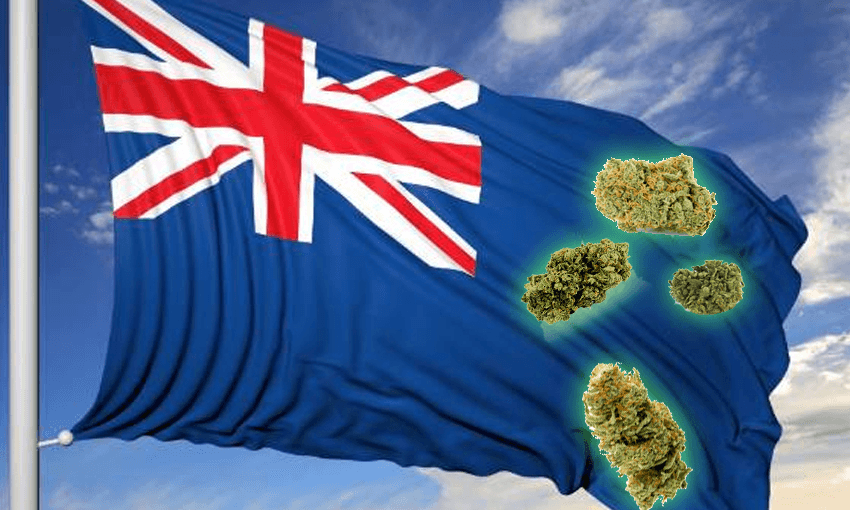A ‘health based’ approach to drug enforcement is one step closer to being written into law after the third reading of the Misuse of Drugs Act Amendment Bill. Don Rowe reports.
The Misuse of Drugs Act Amendment bill has passed its third reading tonight in what MPs and harm reduction advocates are calling the most significant reform in the Act’s 44 year history.
Under the amendment, the police right to exercise discretion when it comes to prosecuting drug-related crimes will be codified into law for the first time. Police will now be required to avoid prosecution in cases where a health-based or therapeutic approach would prove more beneficial.
Police were previously empowered to exercise their discretion, operating under a system of decriminalisation de jure, however while politically convenient, it led to a disproportionate rate of Māori convictions.
In an impassioned speech during debate, Chlöe Swarbrick, who has led the Green’s reform efforts, called the bill “a triumph for compassion and a triumph for common sense”.
“The arc of moral history is long but today it bends towards justice.”
This is huge. We've just changed the law so when police encounter someone with an addiction, they're taken to hospital rather than away in handcuffs.
Congrats to @_chloeswarbrick for working so hard to get this over the line 💚 pic.twitter.com/pt5ECOwsst— Green Party NZ (@NZGreens) August 7, 2019
The bill also reclassifies the synthetics AMB-FUBINACA and 5F-ADB, responsible for a wave of more than 50 recent deaths in New Zealand, as Class A drugs. It also enables temporary drug class orders to be issued for emerging and potentially harmful substances.
Ross Bell, director of the New Zealand Drug Foundation, said the bill sends a clear signal to police that discretion must apply equally to all New Zealanders.
“Make no mistake, this is big, this sends a clear signal to police around police practice that discretion must apply equally. This amendment will start to address the racial inequity in the way that police apply their discretion.”
The win puts into law the “health based” approach Jacinda Ardern proclaimed at the United Nations in New York when she said New Zealand would reject Trump’s call to join the War on Drugs. The passage of the bill comes just months after the government announced $1.9b of funding for mental health and addiction in their “Wellbeing Budget”.
It also satisfies hardliners in New Zealand First, who secured a dramatic 11th hour rewording of Clause 6, which relates to police discretion.
New Zealand First argued in House Committee last night that the prior wording was unclear as to whether police should exercise discretion and defer prosecution when it was “more beneficial” to the individual, or when it was “more beneficial” to the public interest.
The rewording would mean prosecution “remains available to police if the offence is serious enough, ensuring police can continue to prevent harm and keep New Zealanders safe,” New Zealand First spokesperson for law and order Darroch Ball said.
Regardless, during the debate, National MP Brett Hudson accused New Zealand First of going soft, saying they had acquiesced to the Greens and had come out losers, along with the country at large.
Paula Bennett, who has sparred with Swarbrick over the bill for months, last night set out an amendment deleting Clause 6. However it was struck down by the speaker.
During debate Bennett expressed concerns police were ill-prepared to make judgement calls on drug users, adding communities didn’t have the resources to deal with their referrals.
“We’re treating them like social workers.”
Minister for health David Clark accused National of having “more positions on the bill than the Kama Sutra”.
“Though the Kama Sutra is perhaps a more beautiful thing than these knots.”
While Bennett and other critics of the bill have argued repeatedly that it amounted to decriminalisation by stealth, Ross Bell said the allegation had an ironic element of truth.
“When the government announced this bill in December, Stuart Nash and David Clark in the headlines said it was a ‘Crackdown on Synthetic Drug Dealers’. And that just reminds us of the political dance that happens with drug law reform.”
Bell praised the government for passing the amendment, but said it was only the first step to wholesale drug reform.
“It’s not the reform that we need. It’s not reform that the law commission recommended. Everyone knows that the Misuse of Drugs Act needs more than a few sentences changed. It’s obsolete, it’s out of date, it needs to be scrapped and we need to start again. So I applaud the government for this reform, it is big, but it is not the end of drug law reform.
“This a great day, a giant leap forward, but my God we’re still in the dark ages and there’s a long way to go.”

